5 British-Born Major Winners You May Not Have Heard Of
Some great players here and some great stories too.
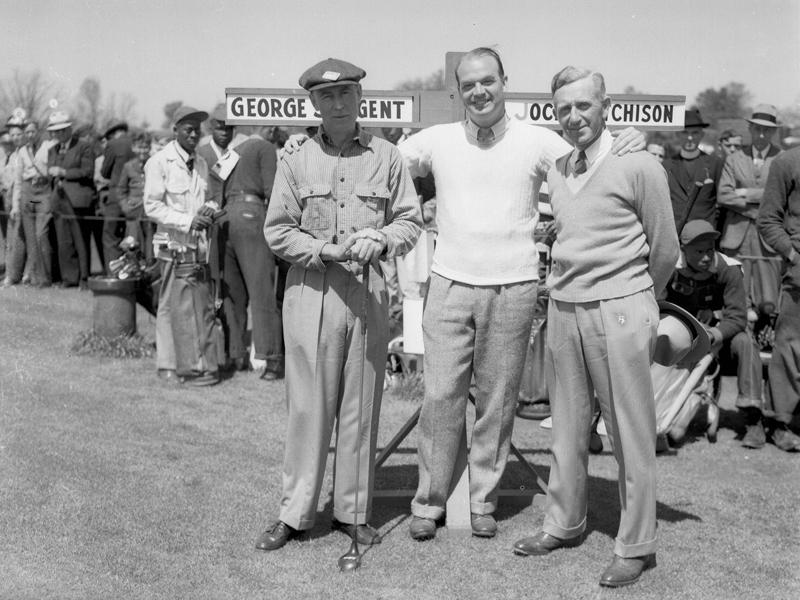

Players from Great Britain and Northern Ireland have won 107 Major Championships in total – Here are some of the lesser known champs.
5 British-Born Major Winners You May Not Have Heard Of
Around the turn of the 20th century there was a significant flow of professional golfers across the Atlantic from the British Isles to the USA.
Many of the players who made the journey went on to enjoy great success in early instalments of the most significant U.S. golf tournaments.
Here we take a look at 5 British-Born Major winners you may not have heard of.
Willie Anderson
In an all-too short playing career, Willie Anderson won four U.S. Opens in the space of five years, between 1901 and 1905.
Get the Golf Monthly Newsletter
Subscribe to the Golf Monthly newsletter to stay up to date with all the latest tour news, equipment news, reviews, head-to-heads and buyer’s guides from our team of experienced experts.
He is the only person to have won the championship three-times consecutively and is one of only four men to have won the U.S. Open four times – the others being Bobby Jones, Ben Hogan and Jack Nicklaus.
Hailing from North Berwick, Anderson became a caddy on the West Links from the age of 11.
He was an apprentice club-maker under Alex Aitken at Gullane before emigrating to the USA aged 16.
He played in his first U.S. Open the following year and finished second.
A third place followed in 1898 and a fifth in 1899.
Utilising his flat “St Andrews” swing and a gutta percha ball, he won his first U.S. Open at Myopia in 1901.
He won again in 1903 at Baltusrol, defended successfully at Glen View and completed his hat-trick back at Myopia in 1905.
Anderson also won the Western Open (at the time considered a Major) four times.
Sadly, Anderson’s career came to an end when he was still a young man.
He died in 1910 aged just 31 – the cause of death was given as epilepsy.
It was generally considered that Anderson was as good as any player of that period and that he would have won considerably more titles if his life hadn’t been cut so sadly short.
Alex Smith
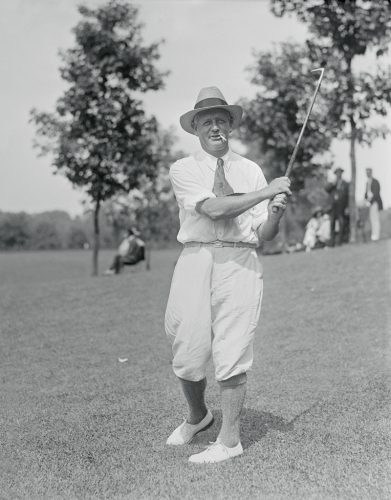
U.S. Open champion in 1906 and 1910, Smith was part of a famous Carnoustie golfing family.
His brother Willie was a U.S. Open winner himself in 1899 and another brother Macdonald won 25 times on the early PGA Tour.
Alex emigrated to the U.S. and was head pro at Nassau Country Club, New York between 1901 and 1909.
His first U.S. Open triumph came at the Onwentsia Club in Illinois in 1906 where he beat his brother Willie by seven shots.
At the time his winning score of 295 was a championship record.
In 1910, he won the U.S. Open again at the Philadelphia Cricket Club.
In that event he came through a three-man playoff against an 18-year-old Johnny McDermott and his brother Macdonald.
Smith was professional at Westchester CC in New York and, amongst other achievements, he was responsible for the completion of the design for Club de Golf Chapultepec in Mexico City – A project started by his brother Willie.
George Sargent
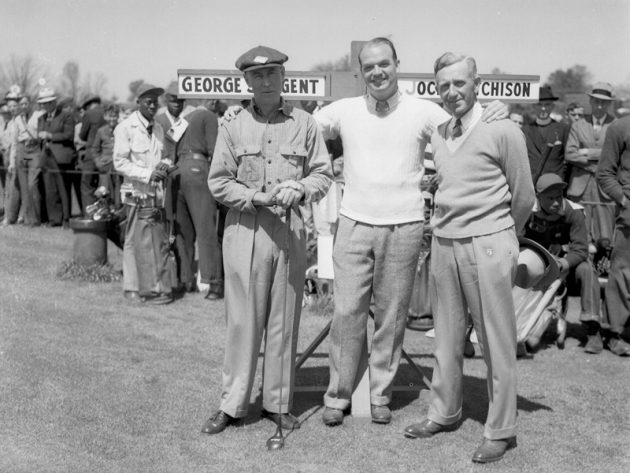
The Englishman finished in the top-10 six times at the U.S. Open and was the winner in 1909.
Born in Brockham, Surrey, Sargent began playing golf at Epsom Downs GC at the age of 12.
He embarked on a career in golf and spent some time working under Harry Vardon at Ganton.
After a decent showing in the 1901 Open Championship at Muirfield, he became professional at Dewsbury Golf Club before moving to Canada.
In winning the 1909 U.S. Open at Englewood GC in New Jersey, Sargent set a tournament scoring record of 290.
He was a founder member of the PGA and its president for five years.
Sargent fathered 11 children and died in 1962 aged 79 in Atlanta, Georgia.
Cyril Walker
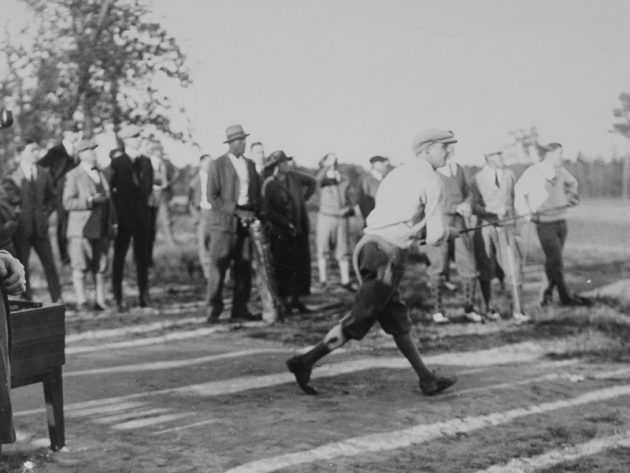
Walker won six times on the fledgling PGA Tour, including the 1924 U.S. Open but he lost control of his career and died in a New Jersey jail cell.
Born in Manchester, Cyril Walker moved to the USA in 1914 at the age of 21.
Playing out of the Englewood Country Club, he won the 1924 U.S. Open at Oakland Hills Country Club.
In that event, he beat the great Bobby Jones (who was defending champion) by three shots.
Although he won one more professional event in 1930, Walker began to disappear from the competitive scene.
He was known for his slow play and short temper and his appearances on the PGA Tour became steadily less frequent.
He had a problem with alcohol and ended up firstly caddying in Miami and latterly washing dishes.
Walker died in 1948 in a jail cell in Hackensack, New Jersey. He had gone there to seek shelter, but he succumbed to pneumonia, aged just 55.
Willie Macfarlane
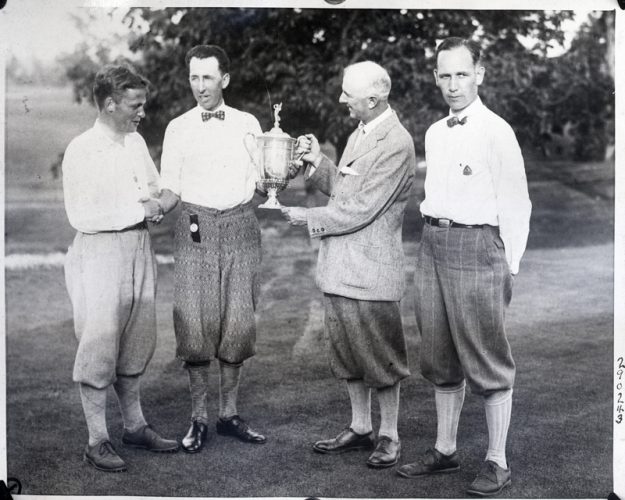
Aberdeen-born Macfarlane overcame the great Bobby Jones in a 36-hole playoff for the 1925 U.S Open.
After emigrating to the USA, Macfarlane enjoyed a fine playing career, winning 21 times on the PGA Tour.
But his greatest triumph came at Worcester Country Club in Massachusetts in 1925.
After 72 holes of that U.S. Open championship, Macfarlane was tied with legendary amateur Bobby Jones on seven-over-par.
The pair returned for an 18-hole playoff the following morning, in which both men shot 75.
They went out for a further 18 holes in the afternoon and Macfarlane triumphed by a single stroke (72 to 73) – Jones bogeyed the final hole to narrowly lose out.
Macfarlane died in Miami in 1961 at the age of 72.

Fergus is Golf Monthly's resident expert on the history of the game and has written extensively on that subject. He has also worked with Golf Monthly to produce a podcast series. Called 18 Majors: The Golf History Show it offers new and in-depth perspectives on some of the most important moments in golf's long history. You can find all the details about it here.
He is a golf obsessive and 1-handicapper. Growing up in the North East of Scotland, golf runs through his veins and his passion for the sport was bolstered during his time at St Andrews university studying history. He went on to earn a post graduate diploma from the London School of Journalism. Fergus has worked for Golf Monthly since 2004 and has written two books on the game; "Great Golf Debates" together with Jezz Ellwood of Golf Monthly and the history section of "The Ultimate Golf Book" together with Neil Tappin , also of Golf Monthly.
Fergus once shanked a ball from just over Granny Clark's Wynd on the 18th of the Old Course that struck the St Andrews Golf Club and rebounded into the Valley of Sin, from where he saved par. Who says there's no golfing god?
-
 Volvo China Open 2025 Picks, Odds And Predictions
Volvo China Open 2025 Picks, Odds And PredictionsFollowing a break for The Masters, the DP World Tour returns for the final two weeks of its Asian Swing and the Volvo China Open is the penultimate event
By Jonny Leighfield
-
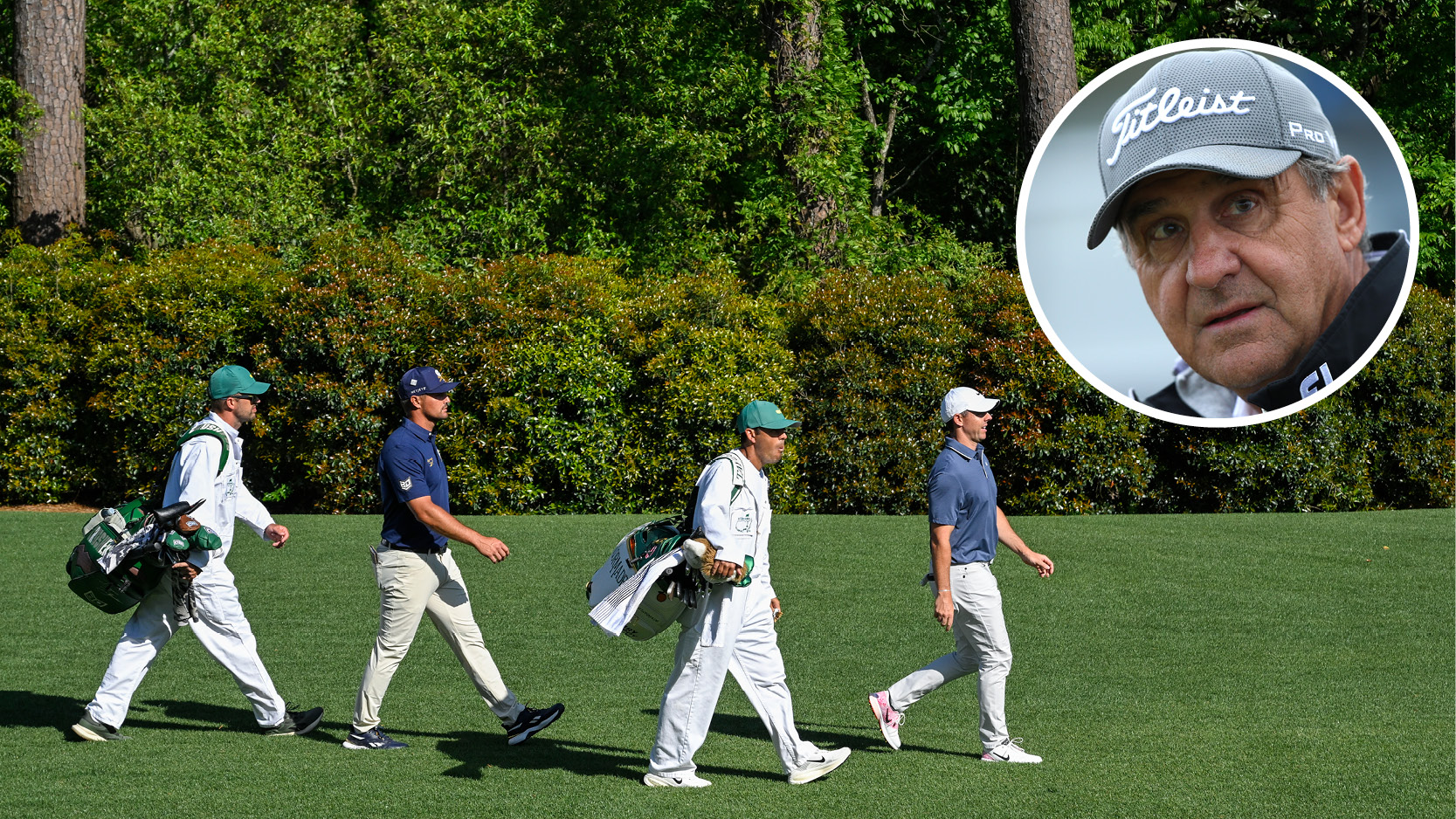 Rory McIlroy's Sports Psychologist Explains Why He 'Didn't Talk' To Bryson DeChambeau In Masters Final Round
Rory McIlroy's Sports Psychologist Explains Why He 'Didn't Talk' To Bryson DeChambeau In Masters Final RoundDeChambeau raised eyebrows at Augusta National when claiming that McIlroy wouldn't engage in conversation during the final round of The Masters
By Jonny Leighfield